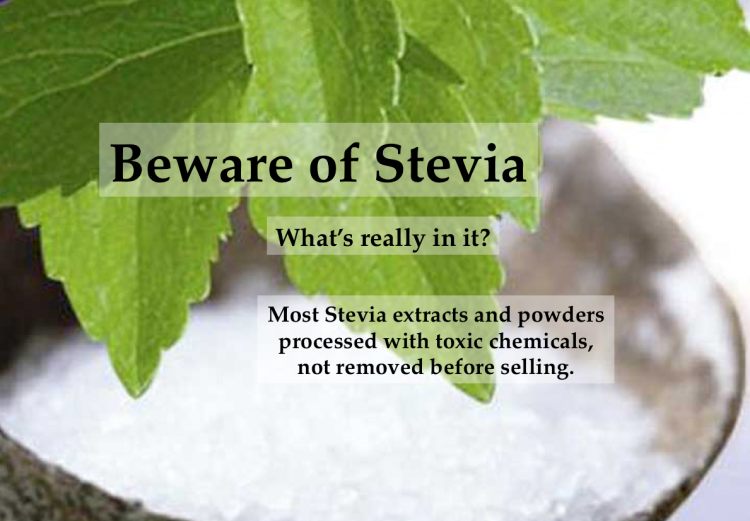Starting
your challenge is to ...
In this week's challenge you must Reduce your need for sweet . Excessive consumption of sugars has been linked to obesity, diabetes, and other health problems. A single can of cola has 10 teaspoons of sugar;
yogurt has 3 teaspoons of added sugar and so do most cereals. Two teaspoons times 3 cups of coffee a day, and the numbers add up. In a year, the average American consumes 141 lbs. of sugar and other sweeteners like high fructose corn syrup!
Every once in a while, science comes to the "rescue" with the introduction of a new zero-calorie sweetener intended to replace sugar and its needless calories. Many are artificial sweeteners, created in labs. Unfortunately,
some of these sweeteners pose even greater health risks than sugar-induced weight gain. Cancer anyone? Some of the newer 0-calorie sweeteners have not been sufficiently tested to assess their long term impact on human health.
Many of the studies that concluded artificial sweeteners are safe were funded, if not conducted, by the companies who introduced them into market. Research has shown that studies funded by industry tend to reach
the conclusion ... desired by industry.Another problem with zero-calorie sweeteners is that instead of trying to reduce our collective sweet tooth, we rely on artificial sweeteners as crutches. They increase our palate's preference for highly sweet food and drink.
Ultimately we consume more sweetened foods.

- Also known as Sucaryl
- 30-50 times sweeter than table sugar
- Discovered by accident in 1937 by a graduate student at the University of Illinois
- Approved for use in 1958
- A 1969 study showed that cyclamate could lead to bladder cancer in rats
- Banned by the FDA in 1969 after evidence of liver damage, bladder cancer, birth defects, and shrinkage of testes (ouch)
- Surprisingly, cyclamate is still being used in other countries.
- Also known as Sweet N Low, E954
- 300-500 times sweeter than table sugar
- The oldest artificial sweetener, it was created in 1878!
- Tests in the 1970's showed a link to bladder cancer in rodents
- The USDA and FDA proposed banning saccharin in 1972, then again in 1977, but agreed to warning labels instead
- In 2000, warning labels were deemed no longer necessary after better understanding of the differences between human and rat metabolisms led to the conclusion that saccharin would not harm humans.
- Also known as: Acesulfame-K, Ace-K, E950, Sunett, Sweet-One
- 200 times sweeter than table sugar and has a bitter after taste
- Approved by the FDA in 1998
- Discovered accidentally in the late Sixties
- It is usually used in conjunction with aspartame or sucralose
- Safety tests were conducted in the 1970's and 1980's, were poorly designed and left questions that even the FDA addressed in working level communications
- 2 Rat studies showed Ace-k may cause cancer.
- Also known as Nutrasweet, Equal, E951
- 200 times sweeter than sugar
- Discovered by accident in 1965 by scientists working for a company that would later be acquired by Monsanto
- In 1974 the FDA did not approve aspartame, because industry sponsored safety studies were not conducted in a satisfactory manner
- The FDA finally approved aspartame in 1981 after additional testing (industry sponsored)
- Today the FDA stance is that aspartame is "one of the most thoroughly tested and studied food additives the agency has ever approved". Unfortunately these are industry funded studies
- 3 independent rodent studies in 2005, 2007, and 2010 found that aspartame does cause lymphomas, leukemias, and other tumors. Exposure during gestation and in early life was especially dangerous. The FDA refutes the findings of these studies
- Also known as E961
- Up to 13,000 times sweeter than table sugar!
- Approved by the FDA in 2002
- Manufactured by the same company that makes aspartame (NutraSweet)
- Unlike aspartame, chemically stable and can be used in baked goods
- Rarely used because the taste profile is problematic
- Safety studies were all sponsored by industry
This challenge was closed on 11/17/2019